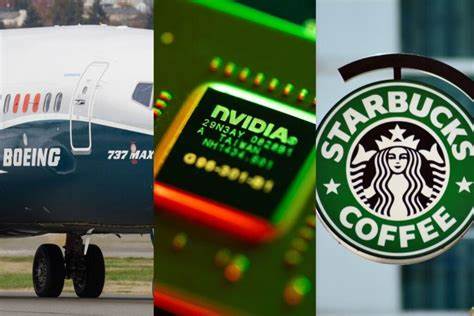Nvidia Corp (NASDAQ:NVDA) is currently grappling with a significant challenge posed by an initiative led by OpenAI, aimed at developing software to facilitate a transition away from Nvidia chips for artificial intelligence (AI) development. Despite Nvidia’s stronghold in the market for chips crucial to large AI systems, competitors like Intel Corp (NASDAQ:INTC), Advanced Micro Devices, Inc (NASDAQ:AMD), and Qualcomm Inc (NASDAQ:QCOM) are throwing their support behind OpenAI’s effort to target Nvidia’s software platform, Cuda. This collective push aims to lure Nvidia’s customers away by offering alternatives and promoting competition in the AI hardware space, as reported by the Financial Times.
An essential aspect of Nvidia’s dominance lies not just in its powerful processors but also in its Cuda software platform. Cuda is instrumental in optimizing chips for accelerated AI applications, making it a cornerstone of Nvidia’s offerings. However, this reliance on Cuda also exposes Nvidia to vulnerabilities if competitors can provide viable alternatives.
Major players in the tech industry, including Meta Platforms Inc (NASDAQ:META), Microsoft Corp (NASDAQ:MSFT), and Alphabet Inc (NASDAQ:GOOG) (NASDAQ:GOOGL), are actively contributing to the development of Triton, a software initiative introduced by OpenAI in 2021. Triton’s primary objective is to enhance code efficiency across various AI chips, with the ultimate goal of reducing Nvidia’s dominance in AI hardware.
Nvidia has long prioritized software development, particularly since the introduction of its Cuda software in 2006. The company has invested significantly in building a comprehensive suite of software tools that streamline the execution of AI applications on its GPUs. This software-centric approach has become integral to Nvidia’s business model and has contributed to its market leadership.
Despite Nvidia’s software prowess, challenges persist due to the high cost and limited availability of its advanced products, such as the H100 and the upcoming GB200 “super chip.” This has prompted major clients like Microsoft, Amazon, and Meta to explore alternative solutions or even develop their technologies to reduce dependency on Nvidia.
The transition away from Nvidia’s Cuda software presents complexities, particularly for clients heavily invested in Nvidia’s ecosystem. However, competitors like AMD and Intel are actively developing alternative solutions, such as the MI300 and Gaudi 3 processors, respectively, which could provide viable alternatives for customers seeking to diversify their hardware options.
Despite these challenges, analysts anticipate strong performance from Nvidia in the April quarter, with products like Blackwell expected to be in high demand, potentially selling out for at least a year.
In Tuesday’s trading session, Nvidia shares experienced a slight decline of 0.99%, trading at $939.45.
